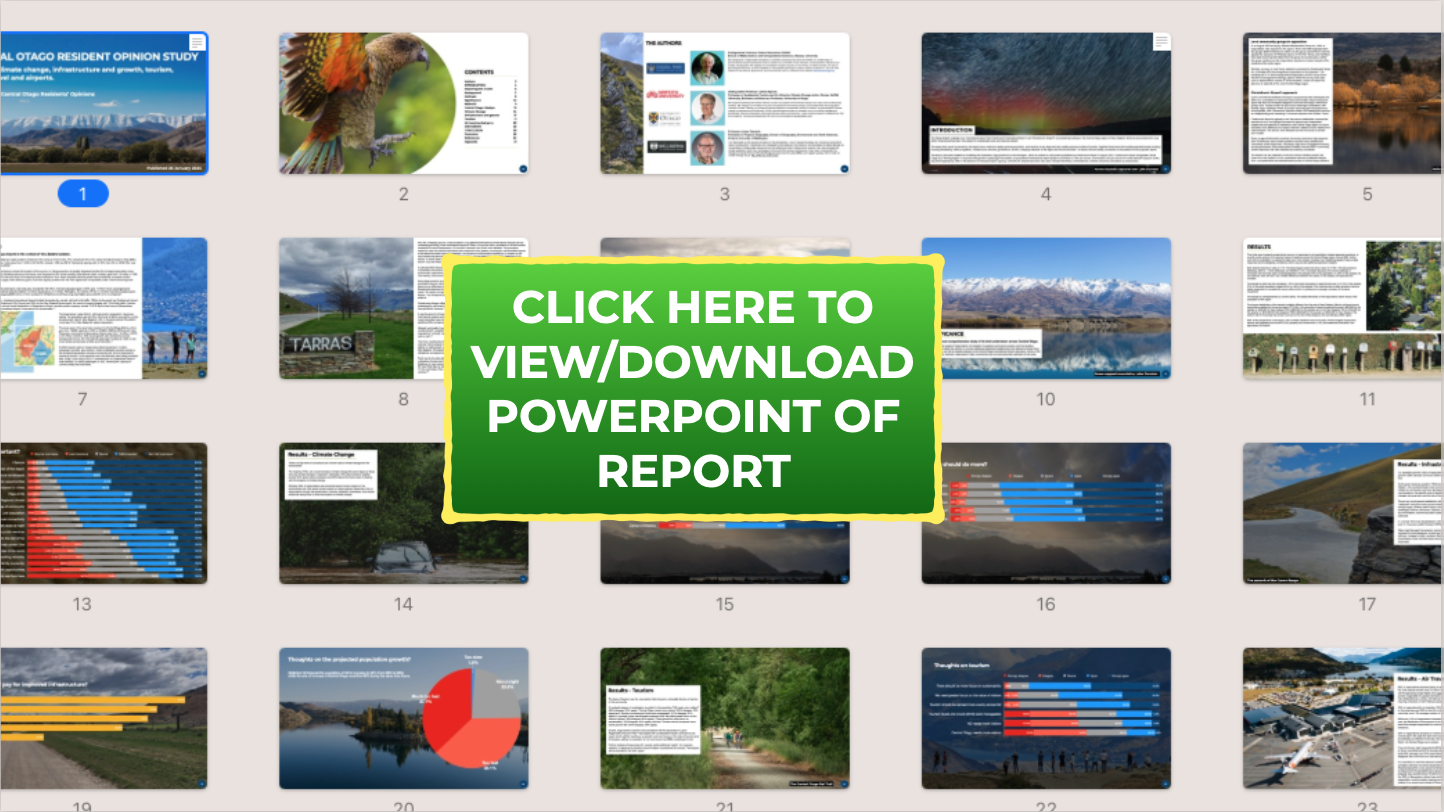The Central Otago Study
In Spring 2023, researchers from four universities launched a project to find out what the people of Central Otago really think: about living in Central Otago, climate change, tourism, infrastructure and growth, and about aviation and air travel. They did this to help inform the debate about Central Otago Airport properly, objectively, and independently in that is is not driven by a commercial imperative or interest. In other words, vital in formation which is unbiased.
The results are in, and the team has now published the first report, with the second and third reports expected later in 2024. Read more below.
Report 1 (26 January 2024): Central Otago Residents' Opinions.
Report 1 of 3 is provides a detailed summary of the responses residents of Central Otago gave to over 70 questions.
Please click on one of the images below to view the report online, and also to download it. You have a choice of pdf format or MS Powerpoint format (please note slides are not editable).
In the meantime, please direct any questions to [email protected]
Report 2 (later in 2024): In depth qualitative analysis.
The second report will present an analysis of all detailed written answers provided in response to the open-ended questions that were included in each section of the study. Written responses to open-ended questions in the survey were extensive, showed very high levels of engagement and understanding of the issues as seen by Central Otago residents themselves. Responses to open-ended questions afford the opportunity to extend the findings of the study from descriptive quantitative analysis to the more in depth analysis of qualitative responses.
Report 3 (later in 2024): Bivariate analysis.
The third and final report will present the results of bivariate analyses to uncover the relationships that exist between responses to different questions. Examining the relationships between demographic variables and opinions on specific issues, for example, allow less immediately obvious insights to be achieved. The finding presented in the third report will be important given the breadth of questions asked and the geographical spread of respondents across the diverse range of communities in Central Otago.


